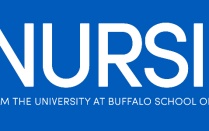Belize: Parte Dos
Sweltering sun, mud, beaches, rain; snorkeling, zip lining, cave tubing, archeological exploring...
Published September 1, 2015 This content is archived.
This is not how your typical Buffalonian would experience winter – unless, of course, you’re one of those fortunate UB nursing students who took advantage of Clinical Assistant Professor Joann Sands’ winter intersession course, Community Engagement Across Populations. Now in its second year, this unique study abroad opportunity offers students a chance to immerse themselves in a culture outside of the United States, encouraging them to absorb new and exciting personal and professional perspectives on life and health. Returning to Belize for a second year, Sands’ group, which consisted of nine UB students and three Pace University students, visited two villages, More Tomorrow and Franks Eddy, for nine days in early January 2015.
“In nursing school, there aren’t many chances to study abroad, so this is really a once in a lifetime opportunity,” says Sands. “By taking this course, students learn so much about the world, about themselves, and about nursing and health care.”
The depth of benefits from this type of excursion goes well beyond the stimulating touristy activities the students enjoyed. Bunking at the Camalote Camp in the Cayo district, the group set up clinics under the direction of International Service Learning (ISL), a non-governmental organization that coordinates volunteers to provide aid to developing communities, with students working alongside two local physicians in intake, triage, a physical and history station, and the pharmacy. They also provided oral hygiene, personal hygiene and skin care education to children at More Tomorrow.
Armed with the previous year’s experience, Sands says they were better prepared in terms of knowing what specific supplies are in high demand, items that Americans often take for granted in everyday life – women’s and children’s multivitamins, pain relievers like aspirin, iron tablets, bandages, and toothpaste. With the wet weather, the group encountered a number of skin maladies; other issues were reminiscent of what Sands’ first group saw the previous year, including uncontrolled hypertension, diabetes and common colds and upper respiratory infections.
“The people teach you more than you could ever learn from a classroom setting or even volunteering locally because it diversifies you. It introduces you to a whole new perspective,” relates nursing student Nautica Lawrence, one of the nine UB students to go on the trip. “The most interesting perspective I gained was how to address the challenges associated with barriers to communication.”
Sands agrees that although communication was a barrier, it was also a learning opportunity. “When students come home, they will encounter patients who don’t speak English, much like they did in Belize. They’re now better equipped to approach and speak to these patients with whom they don’t share a common language.”
“It is not enough to sympathize for patients’ symptoms and provide treatment,” Lawrence says. “We must inquire about external factors, such as emotional strain and home environment, which can contribute to their conditions.
“On this trip, I learned to dig deeper within myself and explore my capabilities. I struggled to take blood pressures, but I stepped in where I could and kept practicing. I was anxious about saying the wrong thing in Spanish, but I asked for help where I could and used body language where useful, and I just didn’t give up on communicating with the patient because I was determined to provide the best care possible. When you are able to be compassionate, you are able to provide high quality and patient-centered care.”
- SARAH GOLDTHRITE
Read More UBNursing
Current Issue
Past Issues
We want to hear from our incredible alumni. Whether you live in Western New York or anywhere else in the world, stay in touch! Send us a class note.


